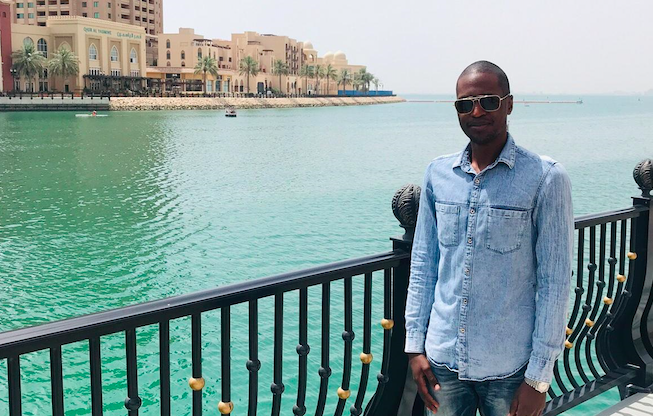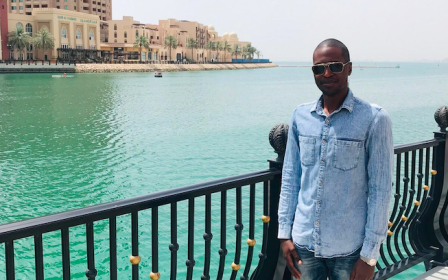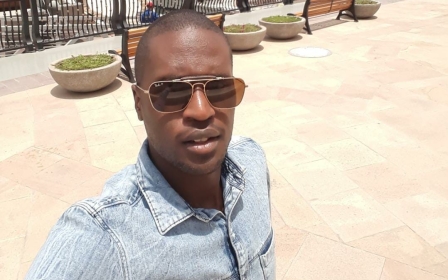Kenyan activist leaves Qatar after detention over coverage of migrant worker issues

A Kenyan rights activist who was detained in solitary confinement for nearly three weeks was allowed to leave Qatar after paying a "substantial" fine.
In May, Malcolm Bidali, who campaigned for migrant rights in Qatar, was arrested at home and held in an undisclosed location by Qatari authorities.
Writing under the pen-name Noah, Bidali would write for Migrantrights.org (MR) to shed light on the restrictions and realities faced by migrant workers in Qatar, as the country prepares to host the 2022 World Cup.
Qatar later charged Bidali with taking "foreign" money to spread disinformation - an accusation the activist has denied.
On Tuesday, MR confirmed that Bidali had left Qatar "after paying a hefty fine" to the Gulf kingdom.
New MEE newsletter: Jerusalem Dispatch
Sign up to get the latest insights and analysis on Israel-Palestine, alongside Turkey Unpacked and other MEE newsletters
It remains unclear how much Bidali was fined. The Qatari government did not respond to Middle East Eye's request for comment by the time of publication.
In June, a coalition of human rights groups criticised the gas-rich county for placing Bidali in solitary confinement.
Bidali's mother, Maggie Turner, confirmed to MEE at the time that her son had been held in solitary confinement for 23 hours a day and was not given access to legal representation.
The Kenyan first arrive in Qatar nearly three years ago, when he worked as a security guard in Doha.
Before his arrest, Bidali appeared at a video conference with other civil society and trade union groups describing the reality faced by many workers in Qatar.
Amnesty International reported in May that Bidali had received a suspicious URL on social media before his arrest that could have been used to track his whereabouts and record his IP address. The rights group, however, could not confirm if Qatari authorities had sent the suspicious link.
Qatar has faced stiff criticism from human and labour rights organisations over its treatment of migrant workers, especially under the controversial kafala system, which ties migrant workers to their local employers, preventing them from changing jobs without their permission.
Although Qatar largely ended the kafala system in September 2020, the country still has a poor record on workers' rights, with construction workers in particular operating in gruelling conditions and receiving low pay and wages delayed for months at a time.
In June, The Guardian reported that many migrant security guards in Qatar were being paid under £1 ($1.38) an hour.
In May, six Nordic associations wrote to Fifa President Gianni Infantino, urging him to ensure human rights are respected at "all facilities used before, during and after the World Cup".
"It is a matter of utmost importance for the football community across the globe… that the theatre of the greatest dreams in football also can be the stage of human rights, respect and anti-discrimination," the letter said.
Middle East Eye delivers independent and unrivalled coverage and analysis of the Middle East, North Africa and beyond. To learn more about republishing this content and the associated fees, please fill out this form. More about MEE can be found here.



